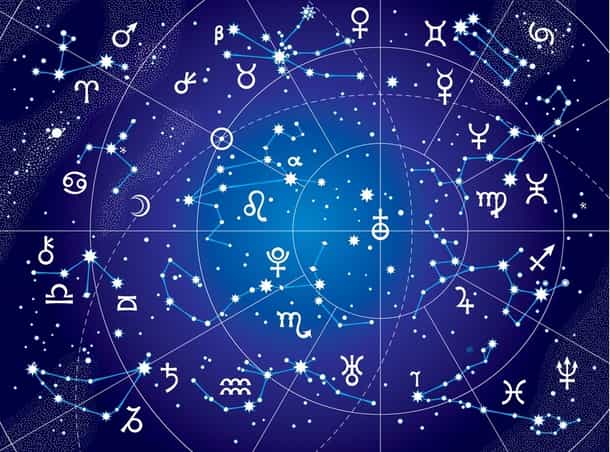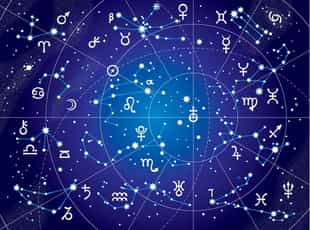Culture
A Dimwit Who Can Read The Heavens, But Not The Affairs Of His Wife
Suhas Mahesh
Jul 17, 2015, 08:55 PM | Updated Feb 12, 2016, 05:22 PM IST
Save & read from anywhere!
Bookmark stories for easy access on any device or the Swarajya app.


Astrologers may have a fondness for the mystic airs of Sanskrit, but Sanskrit certainly doesn’t return the love.
Obeisance to the all-seeing-eye
—The Astrologer—
Who consults knowledgeable fishermen
about the likelihood of rain.ज्योतिःशास्त्रविदे तस्मै नमोऽस्तु ज्ञानचक्षुषे ।
वर्षं पृच्छत्यवर्षं वा धीवरान्यो विनष्टधीः ।।
(Narmamala of Kshemendra)
I once made the mistake of reciting this verse to a student at a Sanskrit University, only to meet with a very sour reaction — turned out he was training to be an astrologer!
Astrologers may have a fondness for the mystic airs of Sanskrit, but Sanskrit certainly doesn’t return the love. In Kāvya, the Astrologer is a thief who picks your pockets while you look up at the stars, a charlatan relying more on common sense than clairvoyance, and a dimwit who can read the heavens, but not the affairs of his wife.
Our Subhāṣita collections have entire sections devoted to taking digs at Astrologers, and no Sanskrit satire is complete without one or two jibes at astrologers. What irony that our Sanskrit universities now depend on Astrologers for their survival! Perhaps it would do their students good to take a look at Nīlakaṇtha’s advice for budding astrologers —
आयुःप्रश्ने दीर्घमायुर्वाच्यं मौहूर्तिकैर्जनैः ।
जीवन्तो बहुमन्यन्ते मृताः प्रक्ष्यन्ति कं पुनः ||Asked how long one will live,
Astrologers should predict a long life.
Those who live long will be in awe;
And dead men don’t ask questions…चारान् विचार्य दैवज्ञैर्वक्तव्यं भूभुजां फलम् ।
ग्रहचारपरिज्ञानं तेषामावश्यकं यतः ।।To give the king a proper forecast
Astrologers first consult spies (cāra)
And then the course of stars (cāra).
But the Astrologer Mahāyātrika in the play Hāsyārnava (Ocean of Laughter) has a better strategy. Asked when the king should wage war, he converges upon a day when the planets spell death and doom. And right he is— which war does not spell death and doom for at least one of the parties? But we must not paint all Astrologers with the same brush. Some actually have carefully cultivated sources of information (this is the same astrologer who goes to the fishermen) —
Though he already knew
through the grapevine
about how the bureaucrat’s
wife fools around,
the crook still pretended
to divine the stars
on a zodiac drawn on a cloth.
Then he feigns meditation for a long time, counting on his fingers, waiting for the Bureaucrat to place money in front of him. And then when a bundle of dīnāras is thrown in front of him, he ominously declares the infidelity of his wife, while frequently knitting his eyebrows, as if drawn into a trance. How delicious the irony is— the corrupt bureaucrat, an extortionist himself, is forced to pay the Astrologer for knowledge that everyone except him knows! Meanwhile, Karma is working at the astrologer’s…
गणयति गगने गणकः चन्द्रेण समागमं विशाखायाः ।
विविधभुजंगक्रीडासक्तां गृहिणीं न जानाति ।।The astrologer calculates the rendezvous of
Viśākhā with the moon.
Unaware that his wife, meanwhile,
is having her own little rendezvous.
(Nīlakaṇṭha)
But sometimes, neither semantic jugglery nor town-gossip seem forthcoming, and that’s when the Astrologer resorts to this time-tested tactic—
विन्यस्य राशिचक्रं ग्रहचिन्तां नाटयर्मुखविकारैः ।
अनुवदति चिरार्गणको यत् किंचित् प्राश्निकेनोक्तम् ।।He sketches the zodiac
and knits his brow in concentration
And after a long pause, finally,
Paraphrases whatever the customer asked.
(Nīlakaṇṭha)
In fact, this dilly-dallying of Astrologers has found its way into many Indian languages as a delightful idiom— “mīna-meṣa-gaṇanā” “Counting [the stars in] Pisces and Aries”, idiomatically to drag one’s feet. But some are wise to these tactics of Astrologers, like the cantankerous Kṛśānu from Viśvaguṇādarśacampū (Mirror to the world’s ways) —
विलिखति सदसद्वा जन्मपत्रं जनानां फलति यदि तदानीं दर्शयत्यात्मदाक्ष्यम् ।
न फलति यदि लग्नद्रष्टुरेवाह मोहं हरति धनमिहैवं हन्त दैवज्ञपाशः ।।
(Venkaṭādhvarin)They do some mumbo-jumbo and wait for the result—
If right, all hail! glory to them!
If wrong, the birth-chart must be inaccurate.
Damn these astrologers!
There is a chilling tale about a depraved astrologer in the Kathāsaritasāgara (Ocean of story-rivers). An astrologer hugs his little son and begins to sob publicly. When asked, he wails that he has foreseen death coming in seven days to take his boy. And a week later, to fulfill his prophecy, he murders his son— a self-fulfilled prophecy, if you will. The public is awe-struck at his prowess and the money begins to pour in. However, all that money could not buy him back his child.
There is a glaring irony in the life of the astrologer— if he can see the future so vividly, why live on the pittance that customers begrudge? How can he lead others out of misery, yet be miserable himself? Why not make a killing in the stock market? Śatāvadhānī R. Ganesh once saw an astrologer with a parrot and composed this verse spontaneously—
शीर्यत्पक्षो गलितमसृणस्वच्छकान्तिः विपुच्छो
हीनाहारो बहुपरिमिते पञ्जरे पञ्जरीकः ।
मिथ्याकार्तान्तिकवशगतो राजकीरो जनेभ्यो
रथ्यापार्श्वे शकुनिशकुनं वक्ति मुक्तिप्रसक्तिम् ॥With crippled wings, faded plumage, and a
mangled tail, the astrologer’s hungry parrot,
crouched in a tiny cage, speaks
of liberation and good omens to passers-by.
What tragic irony! And how many such motivational speakers, gurus and self-help authors have we not seen? Reductio ad absurdum is as powerful in satire as in mathematics and it is used to truly beautiful effect here. Chanakya has some sane advice for those who actually want to do, and just teach—
नक्षत्रम् अति पृच्छन्तं बालम् अर्थोऽतिवर्तते ।
अर्थस्यार्थो हि नक्षत्रं किं करिष्यन्ति तारकाः ॥Wealth ignores the fool who worries about the stars.
Wealth is its own star, why worry about those in the sky?
Our magnates (especially the ones who abandon their billion dollar homes for Vastu) have much to learn from this 2000 year old advice. They can also take consolation that greater minds have been fooled— Newton is said to have berated Edmund Halley, who was a skeptic (possibly apocryphal) “I have studied the matter, you sir, have not”! I leave you this week with a punny verse which shows that the tradition of conflating disingenuous entities with prostitutes has very ancient roots in our country—
गणिकागणकौ समानधर्मौ निजपञ्चाङ्गनिदर्शकावुभौ ।
जनमानसमोहकारिणौ तौ विधिना वित्तहरौ विनिर्मितौ ।।Astrologers and prostitutes,
They both use their pañcāṅga.
(The almanac, their five private parts)
To attract, bewilder
and ultimately loot you of your money.
(Subhāṣita-Ratna-Bhānḍāgāra)
PS: For those who know Sanskrit, there is a pun hiding in the opening verse, which can be seen by splitting dhīvara as dhī-vara.
Blissfully wedded to Physics during day, Suhas Mahesh ekes out time to woo language at night. His other interests include Carnatic music, hobbyist electronics and history.





